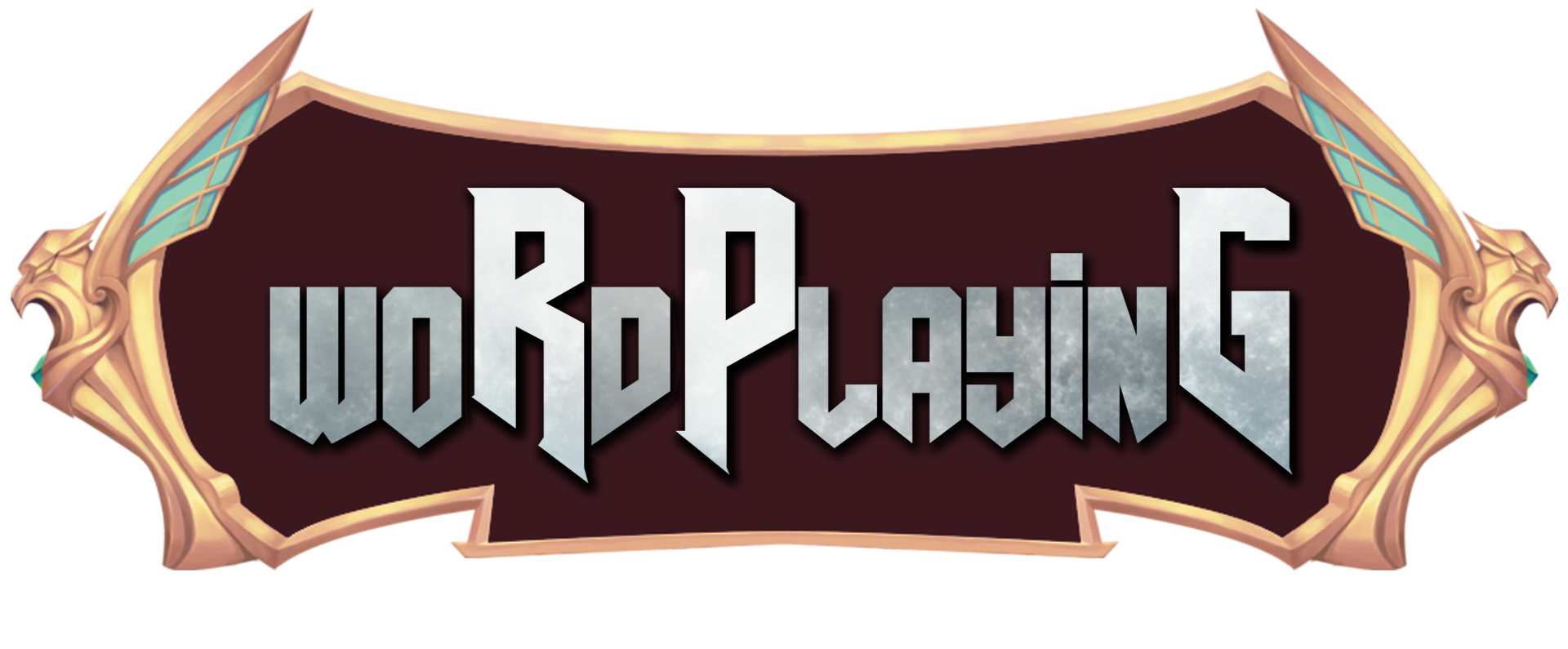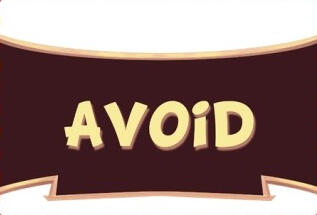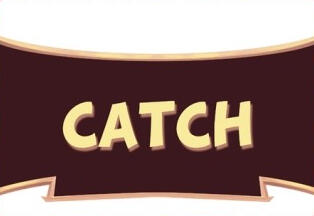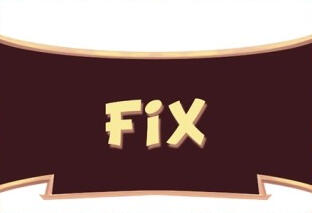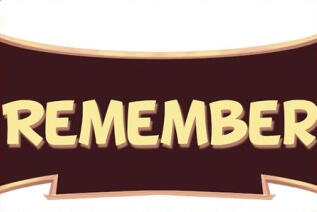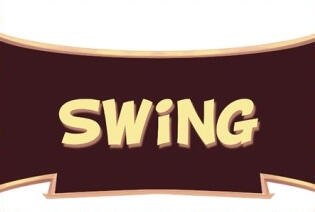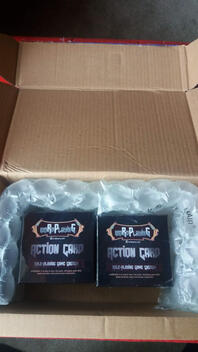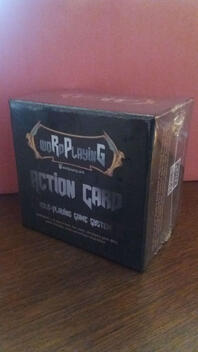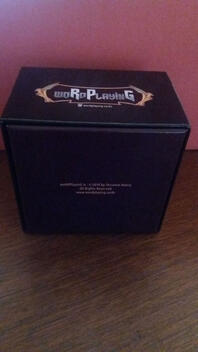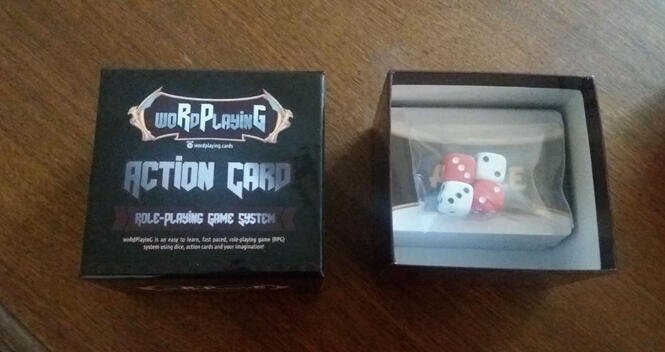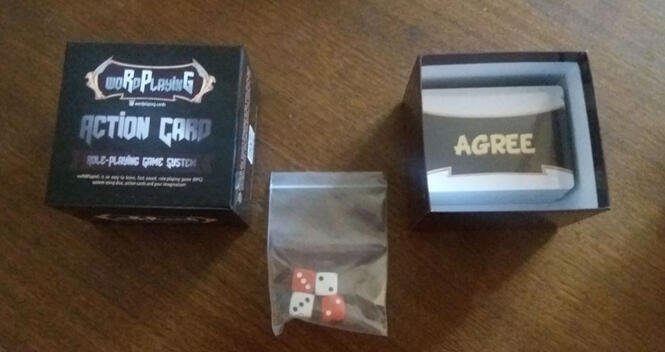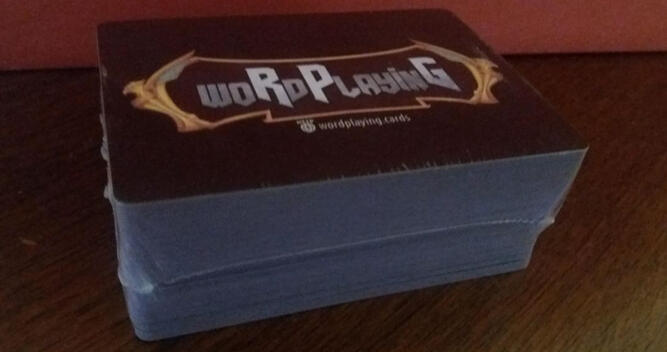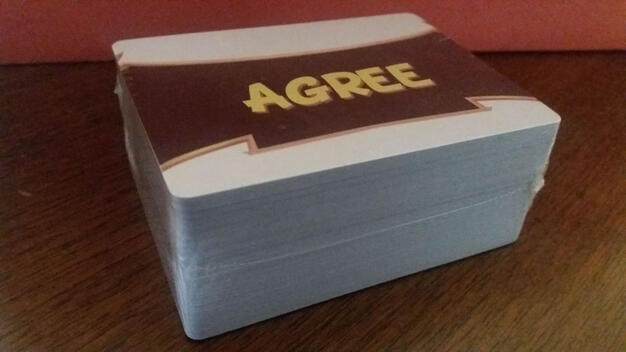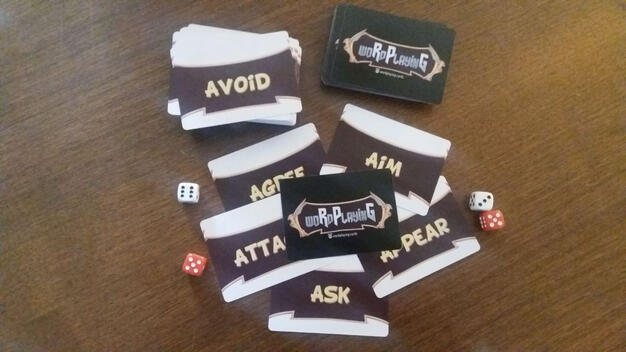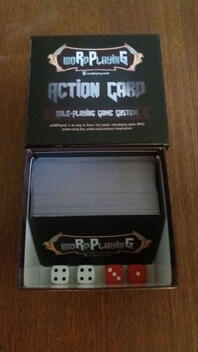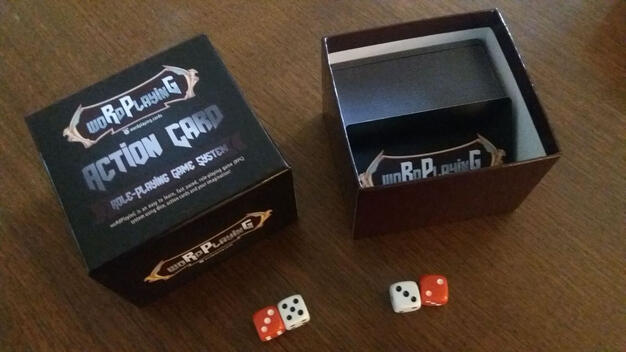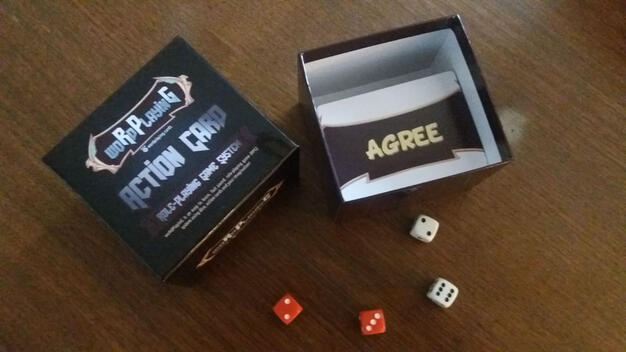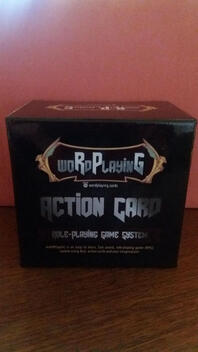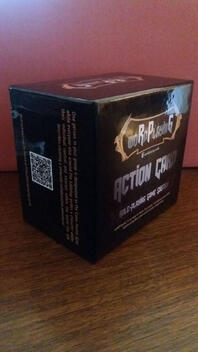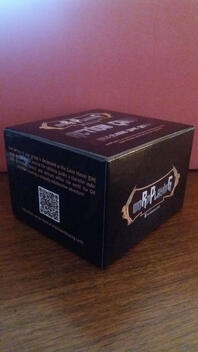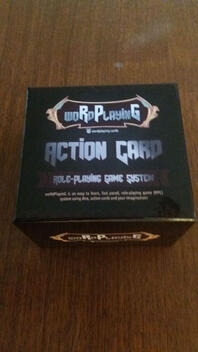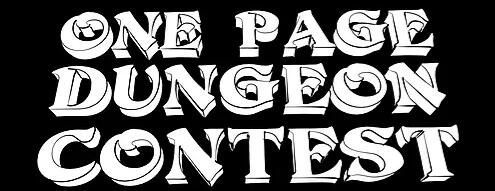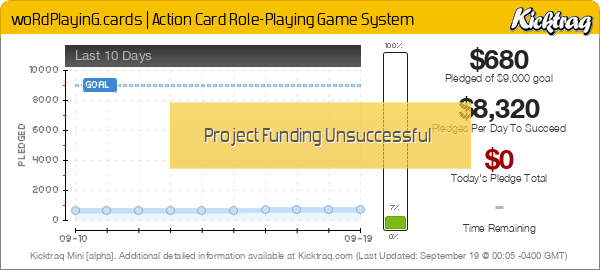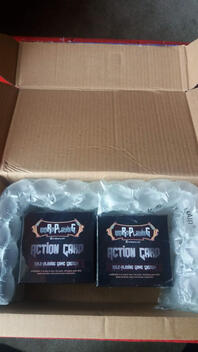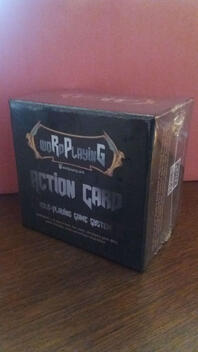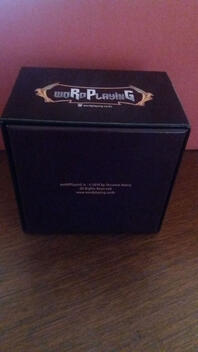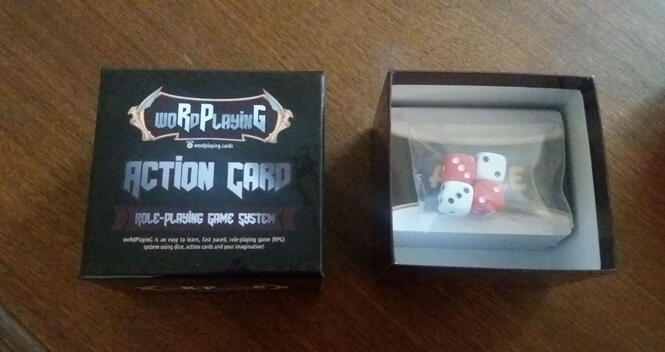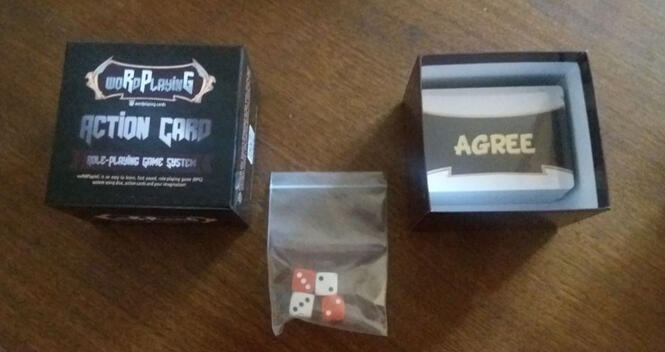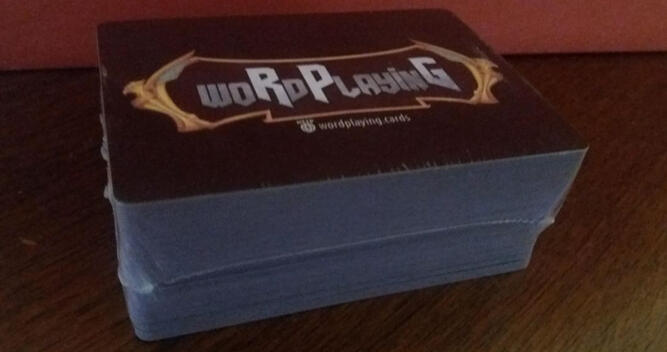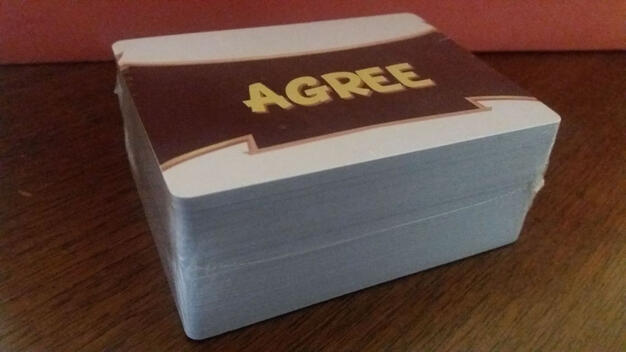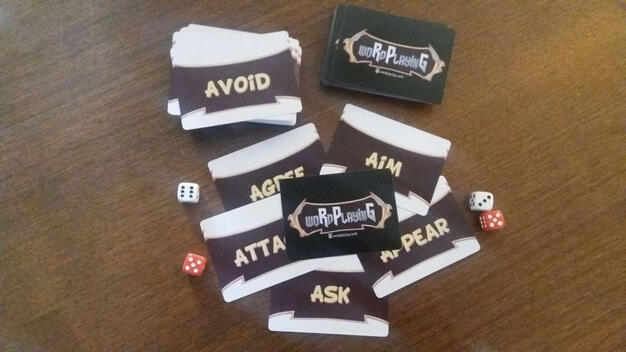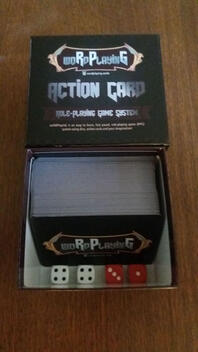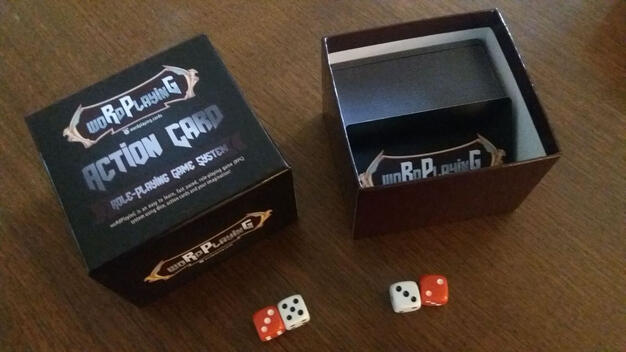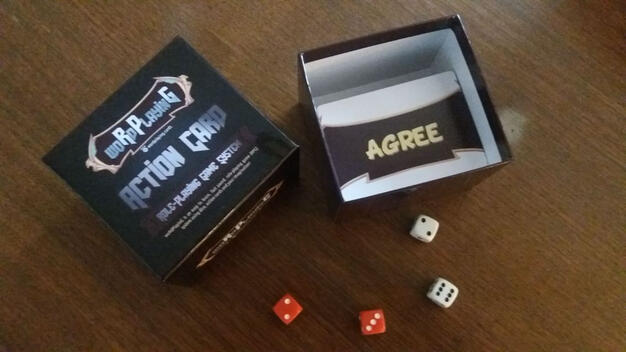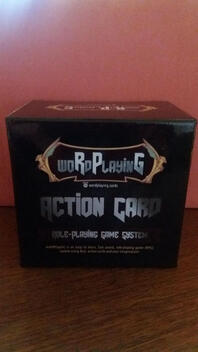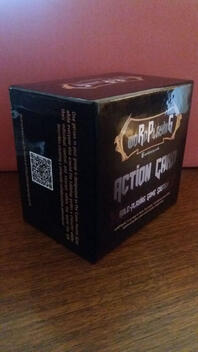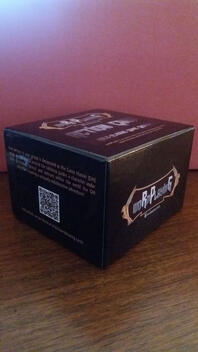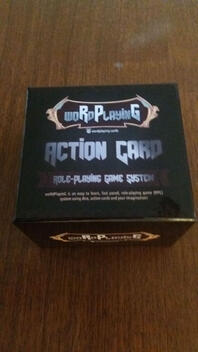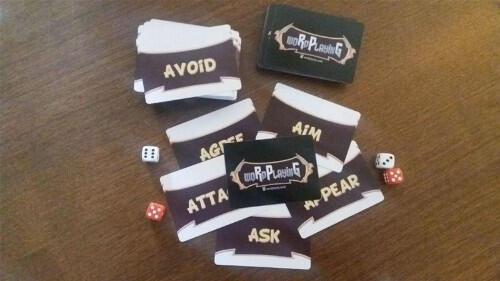OVERVIEW
woRdPlayinG is a simple, easy to learn, fast paced, rules‑light, genre‑neutral, role‑playing game (RPG) system using two differently colored six-sided die (■ ■), jam‑packed with 100 action cards and your imagination!
Let's play!
Task resolution is simplified so that storytelling and speed of play is paramount.One person in your group is designated as the Game Master (GM) while everyone else around the tabletop guides a character under their individual control and interact within the world the GM describes creating a uniquely collaborative adventure!
ABILITIES
There are five main abilities/attributes for each character. The first letter of each ability conveniently spells out "WORDS". Whenever the GM asks a player to check for success to overcome an in-game challenge, task or difficulty that requires a die roll, you will likely refer to one of these attributes to determine success.
| Witty | Smarts, Reason, Wisdom, Intelligence |
| Observant | Intuition, Perception, Spirit |
| Ruff‑N‑Tumble | Hand-to-Hand Combat, Melee, Fisticuffs |
| Durable | Strength, Toughness, Physical Stature |
| Swift | Agility, Dexterity, Hand-Eye Coordination |
For example, to find a clue in a room, you might use the 'Observant' attribute. To leap over a pit of deadly spikes you might use the 'Durable' attribute. To dive out of the way of speeding car you might use the 'Swift' attribute.Additional Abilities/Attributes
What if you need an attribute that doesn't quite seem to be covered by the five listed above? By all means, add it. Just make sure it isn't a Skill (covered later) and can stand on it's own. An example that comes to mind might be a character's wealth. Perhaps a "Rich" or "Wealthy" attribute would be applicable to your game world.
ADVERBS
There are four important key adverbs used throughout the game as incremental descriptors that are placed before abilities/attributes, difficulties and wounds. You will become very familiar with the usage of the following terms:
Barely
Slightly
Moderately
Very
ADVERBS AS ABILITY MODIFIERS
The four adverbs above further clarify a characters level of ability and help add some variation between characters. When combined, they will form variations such as:
Barely Durable
Slightly Observant
Moderately Swift
Very Witty
ADVERBS AS DIFFICULTY
The GM will assign one of the four levels of difficulty to check for success or failure of actions taken by characters during game play. Below are the difficulty levels and what kind of dice roll is needed to achieve success using two six-sided dice (one red, one white).
Barely Difficult
ANYTHING BUT DOUBLESRoll the two six-sided die. Any result other than 1,1 : 2,2 : 3,3 : 4,4 : 5,5 : 6,6 is deemed a success. (Either die can be high)
(@80% chance of success)
■ ≠ ■
ANYTHING BUT DOUBLES or AUTOMATICThe GM may allow the action to succeed automatically or may require a check.
■ ≠≠ ■
Slightly Difficult
RED DIE HIGH (includes doubles)Roll the two six-sided die. If the number on the red die is greater than or equal to the white die it is deemed a success
(@60% chance of success)
■ ≥ ■
Moderately Difficult
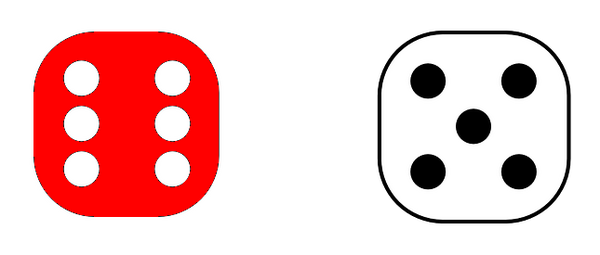
RED DIE HIGH (no doubles)Roll the two six-sided die. The number on the red die must be greater than the white die to be deemed a success
(@40% chance of success)
■ > ■
Very Difficult
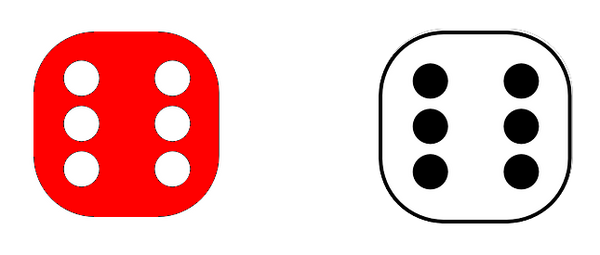
DOUBLES ONLYRoll the two six-sided die. Only a result of 1,1 : 2,2 : 3,3 : 4,4 : 5,5 : 6,6 is deemed a success
(@20% chance of success)
■ = ■
DOUBLES ONLY or IMPOSSIBLEThe GM may determine the action to be impossible or may allow a check for success.
■ == ■
ADVERBS AS DAMAGE
Since there is such a wide variety of genres you may be applying the woRdPlayinG system to, this section will be a loose guide for how to assign damage levels to common weapons. If you feel something should be placed higher or lower in the chart, the choice to do so is all yours! Whatever makes sense to you and your game.
| Barely Powerful | 2‑3 pts max* | bare fists, small knife, small objects, bb gun |
| Slightly Powerful | 2‑6 pts max* | dagger, shortsword, baseball bat, club, small handgun, arrows |
| Moderately Powerful | 2‑10 pts max* | longsword, spear, flail, mace, handgun, crossbow, small laser guns |
| Very Powerful | 2‑12 pts max* | two-handed sword, halberd, morning star, rifle, shotgun, large laser guns |
(*Note: see Damage in Combat)Again, the above are just guidelines for some commonly used items. Should you need your weaponry to potentially do more damage, simply double (2x), triple (3x) or quadruple (4x) the successful action's damage result total and so on... accordingly.For example, "magic items" that have a bonus damage component like a "Shortsword of Wounding" could be simply translated to be Slightly Powerful (6 points max damage) as any other shortsword, but due to its magical nature, the damage score is doubled upon success, so damage score of 2 is doubled to 4, 3 is doubled to 6, 4 doubled to 8, 5 doubled to 10, and 6 doubled to 12."What about my super-mega-bazooka-nuke-cannon or my ancient fire-breathing dragon that goes off the charts?"Essentially, the same applies. If you have a weapon that goes beyond the scope of Very powerful, simply treat it as such, but double, triple, quadruple the damage values as it makes sense to your game.So your 'super-mega-bazooka-nuke-cannon' can just do some crazy multiple (8x) and apply damage accordingly. A score of 2 ( x 8) = 16, a score of 3 ( x8) = 24 and so on... So even a relative successful "scratch" from a weapon such as this has major effects.
Damage in CombatSince we're talking about damage, this seems like as good a place as any to cover how you calculate damage upon a successful roll of the dice.It's easy, if you don't meet the criteria above you miss or fail, do 0 points of damage.If you succeed, add the two dice together from your success check and that's your damage total (and can also be translated into how awesome any successful task is descriptively, i.e. success total of 2-3 is Barely successful while 11-12 is Very successful) with the following in mind:See the prior list of example weapons and damages?
- If the total is equal to or less than the maximum damage of the weapon, you do your rolled amount.
- If the total exceeds what the weapon can do you do the maximum of said weapon._However, if you have an applicable Skill, you can ignore the weapon's maximum cap and inflict your success total. _So, in other words, if you are an expert with a dagger, you are not limited by the damage of the weapon. In your hands, that dagger is far more lethal!Protection & ArmorAnd, since we're talking about damage, lets talk about protection from damage. Let's outline two methods of factoring in protection, armor, forcefields, you name it...THE ONE WAY
- The GM basically factors in the difficulty of being harmed due to the additional protection and bakes it right into the success check, so if it was "Barely Difficult" it gets elevated to Slightly or Moderately, etc. If it pushes into "Very Difficult" territory it can either be impossible or in most cases the GM should allow the roll, knowing that doubles only will be the only way to succeed! Upon success the attacker does the appropriate amount of damage, there is no subtraction as the attacker has already overcome the difficulty.THE OTHER WAY
- This method, doesn't bake in the armor/protection on the task difficulty. The fact that the defender has armor/protection doesn't make them more difficult to hit, but instead follows the similar rules of the example weapon damages above. If it's a small shield perhaps it absorbs 3 points of damage. Some sort of light armor may absorb 4 damage and so on. Deduct the amount of protective points from applicable damage rolls.
ADVERBS AS HEALTH
The four adverb descriptors are also used to denote a characters progressive overall condition during game play. A character's mental health score or physical health score will rise and fall as appropriate from the type of damage sustained or healed.The description of any single damaging attack result can be loosely interpreted/described as follows;
| Barely Wounded | Caused 2-3 points of damage |
| Slightly Wounded | Caused 4-6 points of damage |
| Moderately Wounded | Caused 7-10 points of damage |
| Very Wounded | Caused 11+ points of damage |
Reduction of Mental or Physical Health Score to 0
Once a character sustains enough damage to reduce either score to 0 or negative numbers, it would likely be considered death. Or, perhaps the character is incapacitated and would need immediate medical assistance. (Depending on the type of game/genre you are playing.)
ACTION CARDS
The woRdPlayinG deck consists of 100 action cards!- At the beginning of the gaming session the action card deck is shuffled thoroughly and each player is dealt five (5) cards from the deck. (The GM is dealt no cards).
- During game play, if a player chooses to use one of their action cards they must also discard one action card. (This means during the course of the gaming session the player can use three (3) of the five (5) cards dealt to them.)
- The action card played can only be used once by a player.
- The discarded action card is given to the GM who may use the discard in conjunction with a non player character/GM controlled adversary at any time thereafter during the session.
- The discarded action card can only be used once by the GM.
- Action cards must be declared for use before any die rolls are made for a task.
- Action cards allow a character to roll an additional two times when attempting to succeed at a task (for a total of three).
So, wait, there's an action card with "Catch" and "Avoid" on it? Does this mean my character can't do these things normally without the card!?!?!Whoa, slow down there... of course you can do any action you want at any time.The difference is if you have an action card with an applicable action you want to take in your hands, you greatly increase the chance of success or (depending on the graciousness of the GM) the action can be deemed a success without making a check at all.It really just depends on the situation and how dire the consequence might be if you succeed or fail.For action cards that could be used in an offensive or damaging way like "Swing" - The GM might require a success check because it might be helpful to compute damage. On the other hand, a character with a great advantage already and using an action card as well, might just make sense to skip the check and just get to the descriptive outcome!Use your words...Action cards have another trick they can perform. The words on the cards don't have to be used in such a straight-forward fashion (The game is called woRdPlayinG after all).For example, a character could use the action card Swing in a sentence such as:
| "I will swing [action card] my sword to fight off the demon!" |
| or ... |
| "I will use the jungle vines to swing [action card] across the river!" |
| or how about... |
| "I enter the dance contest and perform my best swing [action card] dance routine!" |
Just a few examples, but I think you get the idea. The action cards open the door for your character to attempt a wondrous act. The well-timed use of an action card could help save a life, solve a clue and so much more.As long as you can use the word in a way that makes sense (GM's discretion) you just say your sentence containing the word and see what happens next!But remember, when you play one of these special action cards, you must then hand the GM one of your remaining action cards (who may now use any cards collected from players against them in diabolical ways)!Pretty slick eh?So don't be so quick to dismiss the usefulness of getting an action card like Walk... because what happens if you are in a burning building and the only means of escape is a narrow beam bridging a gap to safety...Sure, you will have a chance to make a check against your Swift attribute to make it across, but wouldn't you feel better if you could say... "I am going to walk [action card] carefully across the beam to safety with a big grin on my face."While the other players may not be so lucky....A little creativity with an average word could go a long way to spice up your story!
CREATE CHARACTERS
Sometimes a pre-made adventure will provide you with a few characters that players can choose from and play with right away. (Or you can translate pre-made characters from other games to use this system).In the event you want to create your own characters this section will outline how to do just that.
A Blank Character Sheet
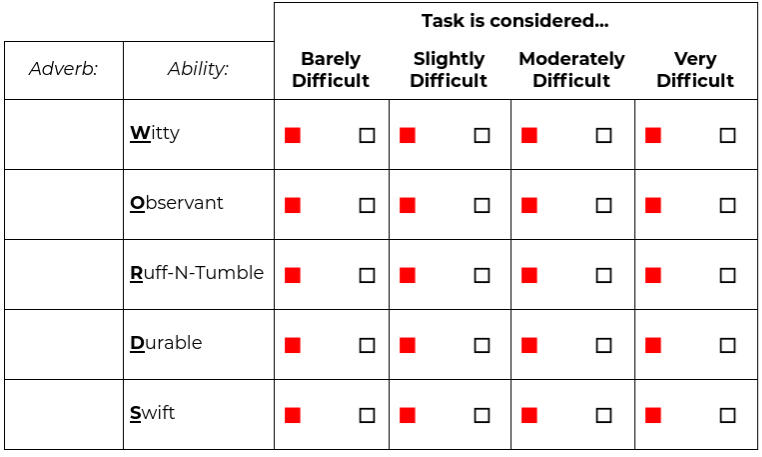
Assigning Ability/Attribute Levels:
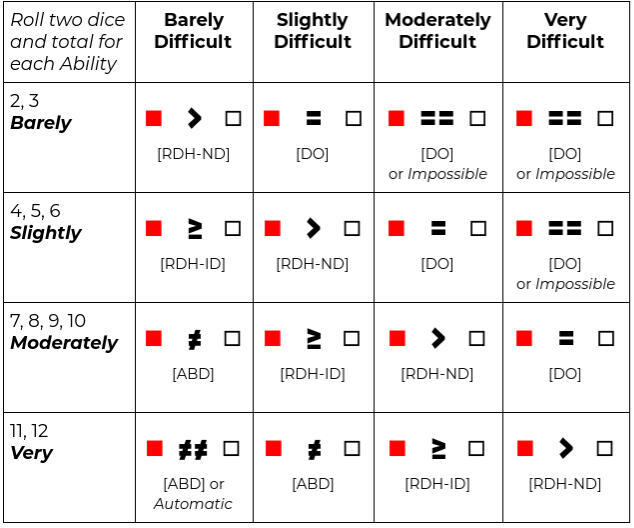
For example:Rolling two six-sided dice, five times and consulting the chart above:
| W : 4 + 5 = 9 |
| O : 6 + 6 = 12 |
| R : 3 + 1 = 4 |
| D : 2 + 5 = 7 |
| S : 4 + 3 = 7 |
fills in the character sheet as follows:
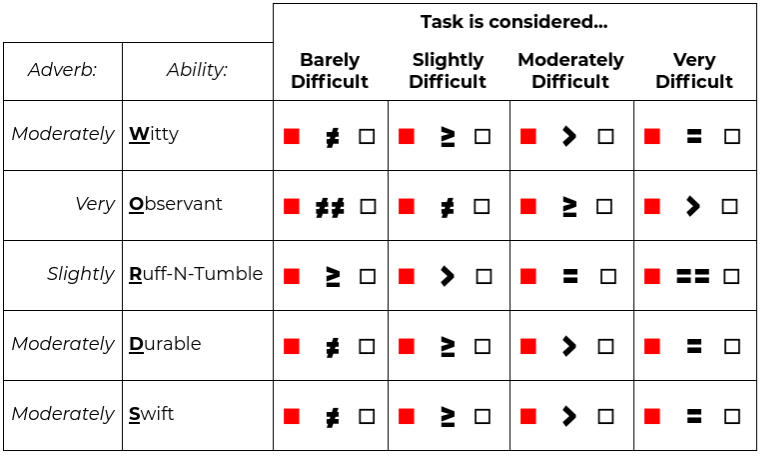
Calculate Character Health
There are two basic health scores that you will need to assign, one physical and one mental. Depending on your genre, you may use one or the other or both ('Horror' genre comes to mind).
Continuing with the example above, to calculate a character's mental health score add Witty + Observation + Durable
| W : 4 + 5 = 9 |
| O : 6 + 6 = 12 |
| D : 2 + 5 = 7 |
| Mental Health Score = 28 |
Again, continuing with the example above, to calculate a character's physical health score add Ruff‑N‑Tumble + Durable + Swift
| R : 3 + 1 = 4 |
| D : 2 + 5 = 7 |
| S : 4 + 3 = 7 |
| Physical Health Score = 18 |
Calculate Character Base Initiative
Whenever the action needs to break down into more manageable chunks of time and the order of who goes first is important (i.e. combat) you will need to use an initiative score for each character. This is a base number that will be augmented by the roll of a single die at the beginning of a battle sequence (round).The highest initiative total goes first (declares and does their action), next highest goes second, etc... This is done for each player and GM controlled player until all have had a chance to take an action and is repeated with a new die roll at the beginning of each round (assuming there is still the need for it), thus changing the order of the actions taken by all involved each round.
Continuing with the example above, to calculate a character's base initiative score (Witty + Observation + Ruff‑N‑Tumble + Swift) ÷ 4 (round up)
| W : 4 + 5 = 9 |
| O : 6 + 6 = 12 |
| R : 3 + 1 = 4 |
| S : 4 + 3 = 7 |
| Base Initiative Score = 32 ÷ 4 = 8 |
Assigning Skills
Next you will select up to two skills from the list below. Roll one six-sided die to determine which of the three columns and choose any skill as appropriate for you character concept or genre that falls within the entire column.Note that skills with an * count as two skill slots.If you have not chosen a skill that counts as two slots, roll one six-sided die again to determine a column and choose another skill as appropriate.Essentially the skills you choose are treated as if you have the VERY highest modifier when you use that skill during game play. So your character may be SLIGHTLY Witty for most things for example, but when it comes to your chosen skill (ARCHAEOLOGY) you treat your level of ability as VERY Witty.For skills that cause damage (such as Martial Arts, Sword, Archery) the same rule applies, but also has the benefit of taking the cap off the maximum damage limit of the weapon / instrument or device when used by an expert.Some skills can be found under multiple attributes, so for each skill be sure to note which attribute it augments.
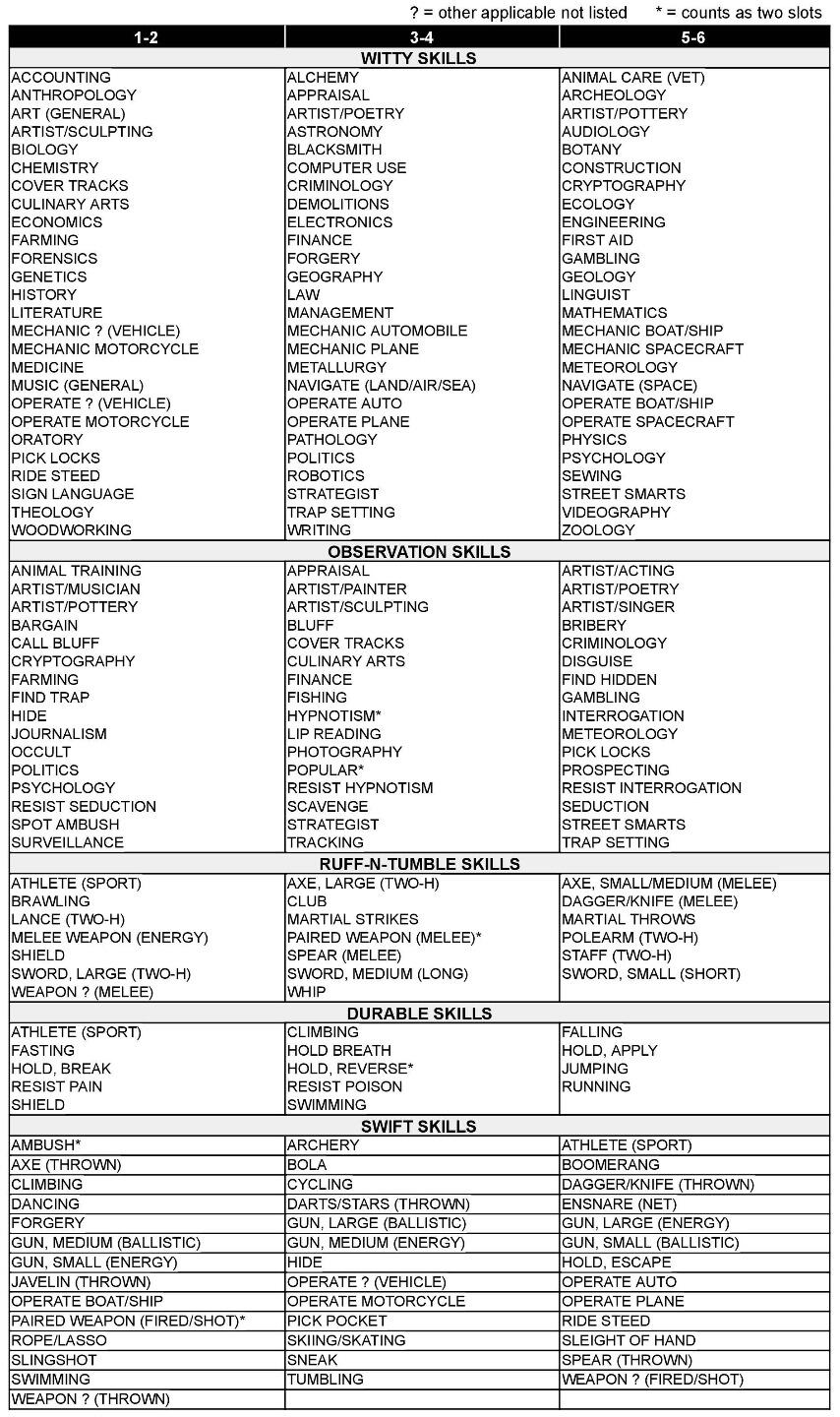
RESOURCES
As you can see, the entire framework of the woRdPlayinG system is outlined on this very website (with the exception of the actual action cards). You could be starting an adventure in a very short period of time with this gaming system.The purpose of the KICKSTARTER funding goal is to bring the materials together in a nice high quality professional package that will be far more convenient to play with and inviting to share with players (or make a great gift for a loved one).So, what will be in the snazzy woRdPlayinG box?
As of now, the following is planned:
To keep the costs down, this website will serve as your online instruction guide.
Should you need a physical copy of this guide, a downloadable woRdPlayinG Rule Book will be made available with appropriate pledge.
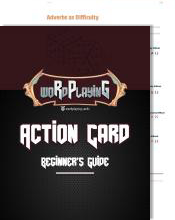
woRdPlayinG Rule Book
A downloadable blank woRdPlayinG character sheet will be made available with appropriate pledge.
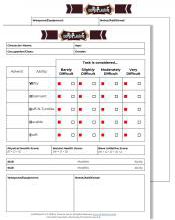
woRdPlayinG Character Sheet
A downloadable set of Print & Play woRdPlayinG Action Cards will made available with appropriate pledge.
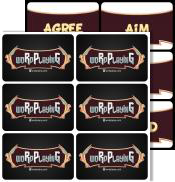
woRdPlayinG Print & Play Action Card Set
FREE ADVENTURE RESOURCES
All that's left is for you to begin crafting adventure ideas for the world you want to create!
There are tons of free resources out there to jumpstart your creativity, but if you want some help in getting started let me point you to a handy site that runs an annual contest called One Page Dungeon Contest, where creators from all over the world create adventures on no more than _one sheet of paper! _Pretty neat! - Look for the "Click for Original Entry Files" graphic when browsing the site.
Search the yearly archives and you'll see hundreds of quick mini-adventures that you could download and play or maybe string several together! Have fun.- Note: I have no affiliation with One Page Dungeon Contest, the website or any of its contents. I am simply providing a suggestion as an additional resource for players.
ABOUT...
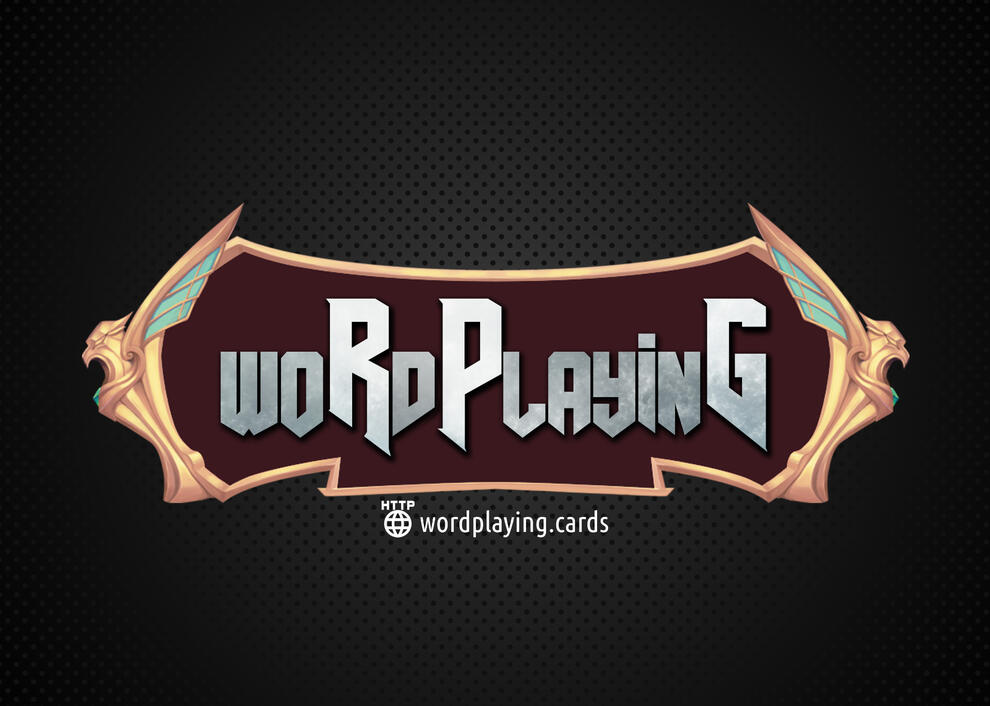
THE REASON FOR THIS GAME
I have heard some variation of the following for most of my role-playing life from people who might want to try a role-playing game:"I am interested in how to roleplay, but intimidated by the amount of time it takes just to get started and to learn all the ins-and-outs of some of the more complex role-playing game systems."Granted, there's a reason why games with deep mechanics and rule sets exist (and I enjoy them too!), but there's plenty of room on the other end of the spectrum.Sometimes, you just want to set up for an adventure and make sure new players will not be distracted by game mechanics, because the collaborative story that unfolds with a group of friends is what should be remembered!The goal here is to make role-playing really accessible and sacrifice some of that complexity for speed and storytelling by using two familiar six-sided die, four basic word modifiers, and a stack of action cards to jump-start each player's role play ideas when a potentially "life-threatening" situation unfolds!The hope is to arm you with an easy framework that you can adapt to your gaming style. The point isn't to explain every detailed rule and the possibilities, it's to let you make the rules work best for you. That's what makes the best rpg games stand apart.The future is bright for the woRdPlayinG system and I can imagine more genre-specific supplements in the future with your help making this initial core a success!
THE AUTHOR
Terrance Henry is a forward-thinking web and communications manager passionate about communication, creativity, technology and its possibilities.He is a veteran of all manner of role-playing games spanning more than 30+ years as a game-master and player. He is also an avid video game collector and enthusiast from classic arcade machines to the modern consoles of today as well as a published comic book writer and creator.He also is a lover of puns!

CONTACT
Media inquiries, questions or comments please drop a line via:
info@wordplaying.cards
Pledge Now!
This project will only be funded if it reaches its goal on
The purpose of the KICKSTARTER funding goal is to bring the materials together in a nice high quality professional package that will be far more convenient to play with and inviting to share with players.Your pledge is appreciated and brings the physical production of woRdPlayinG.cards one step closer to reality.Thank You for your support!
PLEDGE NOW!
This project will only be funded if it reaches its goal on

in
The purpose of the KICKSTARTER funding goal is to bring the materials together in a nice high quality professional package that will be far more convenient to play with and inviting to share with players.Your pledge is appreciated and brings the physical production of woRdPlayinG.cards one step closer to reality.Thank You for your support!
heaRdPlayinG
words about woRdPlayinG
+ Get pre & post-launch updates
+ News and reviews
+ Join Now!
